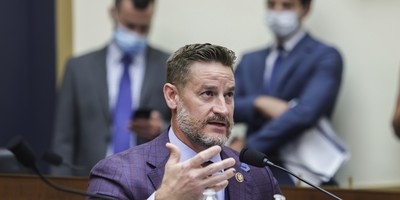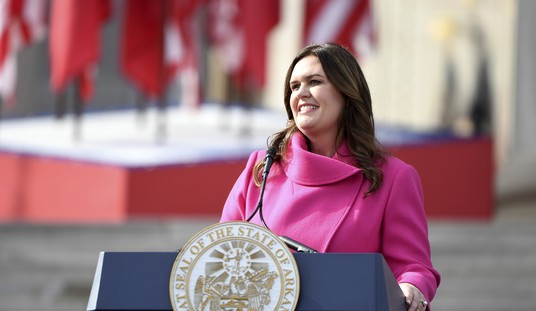And once again, cue Rod Serling, standing jauntily to one side of your television frame in glorious black and white, a wisp of smoke curing from his cigarette. “Picture a nation going on a journey,” he says “a journey which will take that nation into an undiscovered country of fiscal insanity where less is more and more is better. You have just crossed over into The Spending Zone.”
Where is Rod when we need him? Creepy atmospheric music aside, the federal government truly has crossed a threshold which in most people’s wildest dreams would never have appeared on the horizon, even in this administration. Housing and Urban Development announced that it will spend 70 million dollars to teach its grant recipients how to spend to their grant money. It has come to that. We are spending money to teach people how to spend money. The full story is here.
HUD spokesman Brian Sullivan explained that the extra 70 million will be used to amplify existing community development block grants, also known as CDBGs. CDBG money is used for brick and mortar projects such as low affordable housing development, or improving the homes of the elderly or low income families. Some projects may include ADA improvements, and energy efficiency efforts.
The new money will be used to help communities target where they will spend CDBG funds. HUD feels that communities may not be thinking broadly enough in terms of CDBG funding, and that the cash infusion will help them to look at projects regionally by connecting them with nearby jurisdictions. The Minnesota Housing Partnership will get 2 million of that money to provide assistance to other HUD grant recipients in making the most of HUD grants. So the Partnership will receive HUD money to teach other jurisdictions how to use HUD money. Some of the things with which the Partnership will assist these other entities are economic development, construction management infrastructure, sustainable design, organizational development and natural resource protection.
Recommended
Resource protection? Since when is HUD in the business of protecting natural resources? I suppose the more pertinent question is in this administration, why wouldn’t it be?
What is noteworthy is that local communities usually have a pretty good handle on things like economic development, construction management infrastructure, sustainable design, organizational development and natural resource protection. In fact, local governments probably have a better handle on these things than the federal government or its appointed agents. I have sat in on local CDBG hearings and have noticed that not only do the local governments do a good job of identifying projects, but I have seen them enlist the public for its input on where the money might best be spent.
But, if you take the King’s shilling, you do the King’s willing. In this case, the King is interested in spending more money to teach people the proper way to spend money, and has added another layer of bureaucracy to the process. It is possible that now, before a local government decides how CDBG money will be allocated, it will first have to consult with its technical advisory team before putting a shovel in the dirt. And if that agency is in fact representing the federal government, will it have the final say on what projects will be done, which contractors will be hired, and whether or not a proposed project will harm a wetlands, watershed or endangered species habitat? If so, it is conceivable that the local governments, who know where the need for funding is the greatest will have to wait until their projects, plans, contractors, architects and infrastructure all meet with government approval before work begins. And if past performance is in any way indicative of future results, is there any way to gauge how big the government oversight on something like this will get, and how many other programs will suddenly find themselves under this new umbrella?
If a city or county chooses to avail itself of HUD money it has every right to do so. But HUD should recognize that no one knows the lay of the land better than the locals. And it should allow them to decide the best way to utilize that funding. A grant to teach people how to spend grants sounds suspiciously like a Trojan Horse for big government.

























Join the conversation as a VIP Member